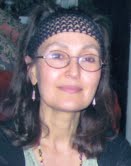
Power is Energy, Unblocked and Properly Directed
Selma Gokcen
“The words of truth are always paradoxical.”
—Lao Tzu
Paul Katz was here recently in London giving a workshop on the bow to the members of the London Cello Society and raised an interesting point about strength. His Tai Ch’i teacher once said to him, “Hardness is Weakness, Softness is Strength: Hardness is Death, Softness is Life.” This remarkable saying inspires this article.
As cellists we need to be able to call upon reserves of power to play our big repertoire, to perform long concerts and tours. No way are we not interested in knowing about power and strength, but as soon as we raise the question of where it comes from, then hundreds of viewpoints can be found. Weight training, strength training, aerobic conditioning, and the list goes on.
We in the Alexander Technique look at the issue from the opposite side. What are we doing to block the energy of our organism? Power is energy properly received and directed, but what happens when, instead of the energy flowing along the spine and into the limbs—outward from the centre—it gets trapped in the wrong muscular contractions at the centre. The energy should well up and stream out of us as it does in healthy young children. Watching a child running gives us that sense of freedom and flow—the child is moving as if from a current of electricity and all the movements are coordinated from within and leading into the periphery.
The kind of power we want is not created by muscular over-exertion, it is released through a balance of forces where the spine/back is the central axis and the limbs are, like the wheel, moving in relation to that strong and stable axis. Power is energy, properly directed. If the spine and back collapse or stiffen, then our true power is lost. We then begin to contract the wrong muscles and we lose that ease that comes from a lengthening spine and widening back. How many cellists raise their shoulders or pull down on their shoulders or tighten their arms in the vain hope of generating more power? Pushing and forcing is a far cry from free-flowing energy.
The Technique provides a framework to train the mind to know the back and spine, to know where one is in relation to the world and to others at all times. And of course as a cellist I experience this knowledge moment to moment while playing. I am sure it sounds strange to those without any such direct experience; indeed it may mean nothing at all. But I can say that my new students make the same discovery: most, if not all, of our attention is constantly drawn forward and down into the world in front of us and there is next to none left for ourselves. We have never been made aware of our backs in either our musical or school education. And by aware I mean keenly sensitive to when the back is collapsing, pushing forward under stress or just not staying back where it is meant to be in relation to the rest of our self. There is a reason it is called a back!
My teacher often used to say: “Put your mind in your back,” or “Harmonise the mind with the back.” There is a quality of attention that arises in us when the mind and back are harmonised. The energy flows, we become quiet and can focus; power can be called upon as needed. The principle of moving in opposition to a stable back goes back thousands of years. Alexander rediscovered it for the 20th century man and woman, and put it into a practical discipline that anyone can learn.
Subjects: Playing Healthy
